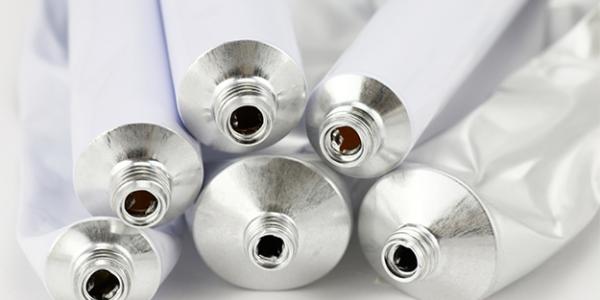
Have We Got It All Wrong About Preservatives?
As the wave of natural beauty shows no signs of slowing down, the argument of natural vs synthetic ingredients continues, particularly when it comes to preservatives. Pick up any cosmetic product and you’ll see ‘paraben-free’ proudly listed on its packaging and advertising. The Soil Association reported a 13% rise in certified natural products in the UK in 2016, and as a result of so many beauty brands emerging that champion the use of natural ingredients; effective and safe synthetic preservatives have been widely avoided by brands and consumers alike.
Dr Anjali Mahto, Consultant Dermatologist at the Cadogan Clinic and author of The Skincare Bible explains that the surge in popularity for natural preservatives is due to a changing customer need; as the demand for “natural” skincare grows, so does the demand for “natural” preservatives. But are synthetic preservatives really that harmful to our health?
What are preservatives?
Much like food, they’re ingredients added to beauty products to enhance their shelf life and to protect us from contamination by microbes such as bacteria, moulds and yeast. They’re an essential part of cosmetic products as without them, we can put ourselves at risk of skin, eye and scalp infections.
What are the most commonly used preservatives in skincare products?
According to Dr Mahto, formaldehyde preservatives or releasers are commonly used in personal care products as they are relatively cheap and have good activity against bacteria and viruses. EU legislation governs how much can be used in skincare and low concentrations are considered safe. Preservatives in this category include: quaternium-15, DMDM hydantoin, diazolidinyl urea, imidazolidinyl urea, and 2-bromo-2-nitropropropane 1,3 diol.
Parabens are the more commonly known preservatives and come in the form of methylparaben, ethylparaben, propylparaben, and butylparaben.
Where do preservatives get their bad reputation from?
As Dr Mahto explains, parabens have been around since the 1950’s and received a lot of negative press following a study by the Scientific Committee on Consumer Safety that reported links to breast cancer. The theory has since been widely discredited by experts and extensive research shows that parabens are not toxic to human cells and are some of the safest preservatives in current day cosmetics.
‘Methylisothiazolinone and methylchloroisothiazolinone (MI/MCI) also hit the headlines some years ago as a cause of skin allergy in susceptible individuals. The EU no longer allows these to be present in “leave-on” cosmetics such as face creams and wet wipes. They can be found in lower concentrations in “rinse-off” products such as shower gels where they are considered to be safe,’ says Dr Mahto.
Is there any evidence to suggest that natural preservatives are safer or better than synthetic preservatives?
In short, no. Natural preservatives offer fewer options, and high concentrations may be required in formulas to achieve the same result. Dr Mahto adds, ‘Depending on how the product was grown or harvested, there is much more variation between product batches and there can be problems with skin sensitivity and allergies over time. As the media has demonised synthetic preservatives, many consumers wrongly feel choosing a product with alternatives is better.’
As she succinctly puts, ‘The development of preservatives to prolong shelf-life of products was a huge turning point for the cosmetics industry. The natural beauty industry often capitalises on fear of long chemical names. Cosmetic science should be evidence-based and not wrongly encourage the idea that natural is somehow safer or better.’
Ultimately, there is no robust scientific evidence to say a natural preservative is better than a synthetic one and there is strict EU legislation in place ensuring that any chemicals we apply to our skin are used in low enough concentration to not cause any harm.
DISCLAIMER: The views, opinions and information expressed in this article and on Victoriahealth.com Ltd are those of the author(s) in an editorial context. Victoriahealth.com Ltd cannot be held responsible for any errors or for any consequences arising from the use of the information contained in this editorial or anywhere else on the site. Every effort is made by the editorial and content team to see that no inaccurate or misleading information, opinion or statement appear, nor replace or constitute endorsement from medical bodies or trials unless specified. Victoriahealth.com Ltd accept no liability for the consequences of any inaccurate or misleading data, information, opinion or statement. Information on Victoriahealth.com Ltd and in the editorials is provided for informational purposes only and is not intended as a substitute for the advice provided by your physician or other healthcare professional. You should not use the information on this website or in the editorials for diagnosing or treating a health concern or disease, or for the replacement of prescription medication or other treatment.